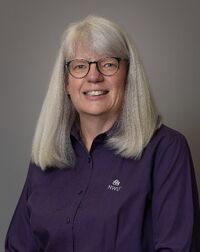Mini Symposium 2023 May 6 - Roelien Goede
|
Exploring ISSS Purpose
Abstract
Critical Systems Heuristics has been practiced in its current form since 1983. It was developed by Werner Ulrich based on the work of C. West Churchman from the 1970s. Since then, the work on Bhaskar in Critical Realism has been adopted in many areas where CSH has been used traditionally. These include business schools, human resource management, information systems, and the education departments. This keynote provides a reflection on Critical Realism, exploring the possibility of incorporating some of its ideas into Critical Systems Heuristics without compromising the core principles of CSH. Adopting ideas into Critical Systems Heuristics should be done within the structure initially designed by Churchman, then extended by Ulrich to create a comprehensive list that guides sense-making in problem situations. Analysis of Critical Realism led to the consideration of a third boundary, complementary to the two boundaries described by Churchman and Ulrich. The talk focuses practical implications of a third boundary for the composition of critical systems heuristics. We demonstrate these theoretical ideas with a practical example in human resource management to show and justify the extension of critical systems heuristics.
Short Bio
Roelien Goede is the Director of the Unit of Data Science and Computing at North-West University, South Africa and a Past-President of the International Society of Systems Sciences. Her research interests include Critical Systems Thinking applied to Business Intelligence and Programming Education. She has a keen interest in research paradigms focusing on applying Action Research in Information Systems Research. She is an independent assessor for the L7 ST apprenticeship in the UK. She had been involved as a systems specialist in various international projects and frequently presents workshops and keynote addresses on Critical Systems Heuristics. Her current research project is on the extension of Critical Systems Heuristics to explicit on the boundary aspect of traditions and internal policies of organisations. She holds a PhD in Information Technology from the University of Pretoria, South Africa. Her PhD focus was on Systems Thinking in Decision Support Systems. She has supervised 10 PhD students and 14 Master’s students. She is recognised by the South African Research Foundation as a scholar with considerable international recognition for the high quality and impact of her work.

